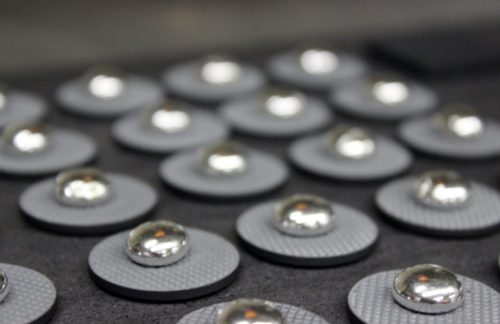
With their extremely high melting point of 4000° F, refractory metals are uniquely capable of withstanding heavy use under severe conditions. This property, as well as their high density and chemically inert characteristics, make refractory metals ideally suited for a number of industrial applications. Here are just a few instances of the way in which these remarkable materials can be utilized.
Refractory Metal Contacts
Any industrial use that requires constant wear at low to medium voltages is an ideal circumstance for refractory metals. Motor controls, power transfer switches, circuit breakers, push-button switches, wiring devices, and countless other examples of electrical contact assemblies make good use of the refractory metals’ toughness and durability.
Refractory Metals in Powder Form
The advantages of refractory metals – such as their exceedingly high melting points – means manufacturing can be a challenge. One technique to better utilize their characteristics while reducing cost is to apply refractory metals in powder form onto a base metal. By bonding an extremely thin layer of refractory metals onto a surface area of a cheaper metal, manufacturers can cut back on the amount of precious metal required to achieve the same advantages that come with standalone refractory metals. These powder metal contacts are only necessary at critical points, so the cost is reduced without any reduction in quality.
Silver Contacts
Silver has a high conductivity, so it’s perfect for electrical contacts. Besides the better conductivity, contacts made of silver alloys such as silver nickel, silver tin oxide, silver graphite, and silver tungsten are highly durable and low in environmental toxicity, making silver alloys the preferred contact used in many industrial situations.
Cadmium Contacts
Cadmium, unfortunately, is highly toxic and has gone out of fashion of late due to environmental concerns. Composed mostly of alloys such as silver cadmium oxide, the more reliable and safer alternative silver alloys are replacing cadmium in most modern applications.
The durability, reliability, and low cost of refractory metal contacts – as well as the decreased environmental impact of new silver alloys – has led to their increased demand in the world of industry and manufacturing for the present and for the indefinite future.
